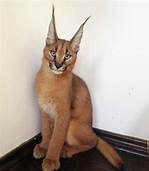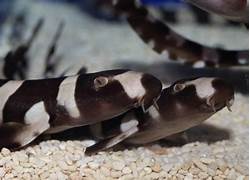Can You Have a Pet Caracal?
Caracals are beautiful, wild cats that are native to Africa and parts of Asia. They are known for their distinctive tufted ears and long, sleek bodies. While caracals are not typically considered to be good pets, it is possible to keep them in captivity. However, it is important to be aware of the challenges and risks involved before making the decision to acquire a caracal as a pet.

Legality
Before acquiring a caracal, it is crucial to research local laws and regulations regarding the ownership of wild animals as pets. Certain countries, states, and cities have specific laws prohibiting the keeping of caracals, or require special permits or licenses.
Health Concerns
Caracals carry diseases and parasites that can be transmitted to humans through direct contact or through contaminated soil and water. It is essential to take appropriate health precautions and regularly consult with a veterinarian experienced in handling wild animals.
Housing and Diet
Caracals require significant space and a secure enclosure that simulates their natural habitat. They have a high energy level and need opportunities for climbing, running, and jumping. In addition, their diet consists of raw meat, which must be properly prepared and handled to avoid health risks.
Instinct and Behavior
Caracals are wild animals with instincts to hunt, stalk, and climb. They may display unpredictable behaviors and can be difficult to train or domesticate. Even with socialization and training, a caracal's natural instincts may lead to unwanted behaviors or aggressive tendencies.
Cost and Availability
Acquiring a caracal can be a costly endeavor. Breeders who specialize in rare and exotic animals may charge a hefty sum, and the ongoing expenses for housing, food, veterinary care, and insurance can add up quickly.
Ethical Considerations
Keeping a caracal as a pet raises ethical concerns regarding the well-being of the animal. Caracals are wild animals that belong in their natural habitat, where they can engage in natural behaviors and interact with their own species. Captivity may lead to stress, psychological distress, and a compromised quality of life.
In conclusion, while it is possible to keep a caracal as a pet, it is a challenging endeavor that requires extensive research, commitment, and resources. The legal, health, housing, and ethical considerations must be carefully weighed against the potential risks and rewards of keeping a wild animal in captivity.
Declaration: All article resources on this website, unless otherwise specified or labeled, are collected from online resources. If the content on this website infringes on the legitimate rights and interests of the original author, you can contact this website to delete it.






